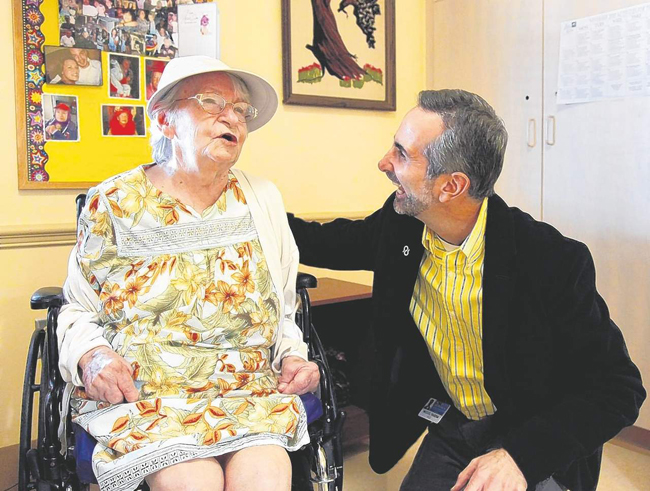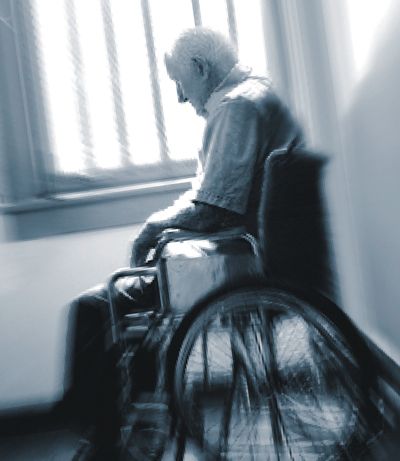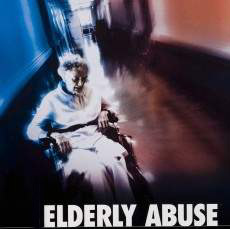
Now this, is the kind of mental therapy we can get behind—”Psychiatrist tries a different approach with dementia patients”
Dementia patients can get anxious to the point of violence while bathing, and this cheery beach mural is one of many small innovations that have lifted moods here in recent months. Under the direction of psychiatrist Dr. Miguel Rivera, caregivers at the Pines have deployed such simple spa comforts as music, massage and calming colors to help reduce agitation. As a result, dosages of antipsychotic medications have dropped to less than half the state average for this most challenging patient population. “I remember so many times walking through that old west hallway at the Pines” before the building was remodeled, he says. “After the first few years of me working there and seeing how people were overmedicated, and boredom was so prevailing, I remember — and I feel it right now — just walking down that hall, and praying, saying, ‘Please, God, show me a way.’ ” It was Rivera’s wife, Natasha, he says, who put him on a path to exploring alternatives to drugs. Both practitioners of TriYoga, they met in 2007 on a spiritual trip to India. By the end of the three-week stay, they were married. A year later, she joined him in Sarasota from her native Russia. And almost immediately, Rivera says, she changed the way he was doing his job.
Rivera soon found research on the use of music, massage and other therapies on dementia patients. His reading also led to the use of daily affirmations by Pines staffers, who tell the patients, “You are safe; you are loved; you are happy.” The result, says Westbrook of the Pines, was “this whole beautiful circle he has created here that has changed that unit.”



